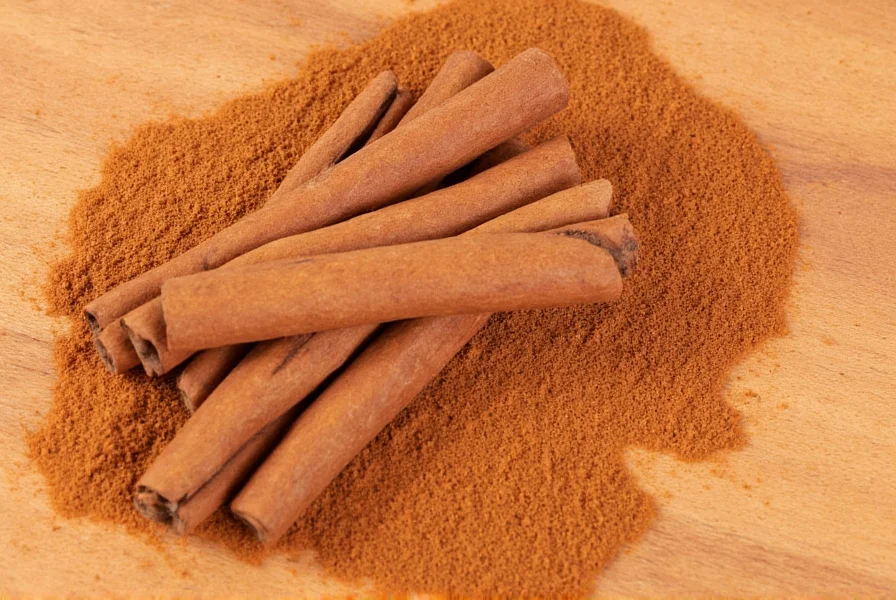Many expectant mothers wonder about the safety of common spices like cinnamon during pregnancy. As a naturally sweet spice frequently used in cooking and baking, cinnamon raises legitimate questions about appropriate consumption levels for maternal and fetal health. This evidence-based guide examines current research to provide clear recommendations for pregnant women considering cinnamon in their diet.
Understanding Cinnamon Varieties and Their Differences
Not all cinnamon is created equal when considering pregnancy safety. The two primary types available commercially have significantly different chemical compositions:
| Cinnamon Type | Coumarin Content | Common Availability | Recommended for Pregnancy |
|---|---|---|---|
| Cassia (Chinese) Cinnamon | High (2-5% coumarin) | Most common in supermarkets | Limited amounts only |
| Ceylon (True) Cinnamon | Very low (0.004% coumarin) | Specialty stores, health food markets | Preferred option |
Coumarin, the compound of concern, has been shown in animal studies to potentially cause liver damage and may affect fetal development when consumed in excessive amounts. While human studies are limited, health authorities recommend caution with high coumarin intake during pregnancy.
Research on Cinnamon Consumption During Pregnancy
Current scientific evidence suggests moderate cinnamon consumption poses minimal risk to pregnant women. A 2022 review published in the Journal of Herbal Medicine examined multiple studies and concluded that culinary use of cinnamon (up to 1 teaspoon daily) shows no adverse effects during pregnancy. However, the same review cautioned against medicinal doses or cinnamon supplements, which often contain concentrated compounds.
Some research indicates potential benefits of moderate cinnamon consumption during pregnancy:
- May help regulate blood sugar levels, particularly beneficial for women with gestational diabetes
- Contains antioxidants that support overall health
- Natural anti-inflammatory properties
- May help alleviate morning sickness when used in small amounts
Safe Consumption Guidelines for Expectant Mothers
Based on current evidence and recommendations from major health organizations, pregnant women should follow these guidelines for cinnamon consumption:
- Limit daily intake to no more than 1 teaspoon (approximately 2-4 grams) of ground cinnamon
- Choose Ceylon cinnamon when possible, as it contains significantly less coumarin than Cassia varieties
- Avoid cinnamon supplements and essential oils, which contain concentrated compounds
- Be cautious with cinnamon tea - limit to one cup daily and ensure it's made from Ceylon cinnamon
- Monitor for allergic reactions or digestive discomfort, which may increase during pregnancy

Potential Risks of Excessive Cinnamon Consumption
While moderate cinnamon use appears safe, excessive consumption during pregnancy may pose several risks:
- Elevated coumarin levels from Cassia cinnamon may potentially affect liver function
- Uterine stimulation at very high doses, though this is primarily a concern with cinnamon supplements rather than culinary use
- Blood thinning effects that could complicate delivery if consumed in excessive amounts close to due date
- Digestive issues such as heartburn or stomach upset, which may be exacerbated during pregnancy
Practical Tips for Incorporating Cinnamon Safely
For pregnant women who enjoy cinnamon's flavor, these practical suggestions can help maintain safe consumption levels:
- Use Ceylon cinnamon in oatmeal, smoothies, or yogurt instead of Cassia varieties
- Measure portions rather than pouring freely from the container
- Combine with other pregnancy-safe spices like ginger or nutmeg to reduce overall cinnamon quantity
- Avoid commercial pumpkin spice blends which often contain high coumarin Cassia cinnamon
- Check ingredient labels on baked goods and processed foods for cinnamon content

When to Consult Your Healthcare Provider
Certain pregnancy conditions warrant extra caution with cinnamon consumption. Consult your healthcare provider before consuming cinnamon if you:
- Have been diagnosed with gestational diabetes
- Have liver conditions or concerns
- Are taking blood-thinning medications
- Have experienced unexplained bleeding during pregnancy
- Have a history of cinnamon allergy or sensitivity
Your healthcare provider can offer personalized guidance based on your specific health profile and pregnancy progression. They may recommend specific limits or alternatives based on your individual circumstances.
Comparing Cinnamon to Other Pregnancy-Safe Spices
Cinnamon fits within a broader context of spice consumption during pregnancy. Many common spices are considered safe in culinary amounts, including:
- Ginger (excellent for morning sickness)
- Garlic (in normal food amounts)
- Turmeric (moderate amounts)
- Coriander
- Cumin
Unlike some spices that should be avoided entirely during pregnancy (such as large amounts of licorice root or certain herbal supplements), cinnamon falls into the category of spices that are safe with reasonable moderation.
Final Recommendations for Cinnamon During Pregnancy
Based on current medical understanding, cinnamon can be safely enjoyed by most pregnant women as part of a balanced diet. The key considerations are moderation, choosing the right variety (Ceylon over Cassia), and avoiding concentrated forms like supplements or essential oils. As with any dietary question during pregnancy, when in doubt, consult your healthcare provider for personalized advice that considers your complete health profile.
Frequently Asked Questions
Can cinnamon cause miscarriage during early pregnancy?
No, moderate culinary use of cinnamon (less than 1 teaspoon daily) does not cause miscarriage. This misconception likely stems from concerns about very high doses or cinnamon supplements, which are not recommended during pregnancy. Normal food amounts pose no such risk according to current medical evidence.
How much cinnamon tea is safe during pregnancy?
One cup of cinnamon tea per day is generally considered safe during pregnancy, provided it's made from Ceylon cinnamon rather than Cassia. Excessive consumption of cinnamon tea could potentially lead to higher coumarin intake, so moderation is key. Always check with your healthcare provider if you have specific health concerns.
Is Ceylon cinnamon better than Cassia cinnamon during pregnancy?
Yes, Ceylon cinnamon is generally preferred during pregnancy because it contains significantly less coumarin (approximately 250 times less) than Cassia cinnamon. While moderate amounts of Cassia are acceptable, Ceylon provides the flavor benefits of cinnamon with minimal coumarin exposure, making it the safer choice for regular consumption during pregnancy.
Can cinnamon help with gestational diabetes during pregnancy?
Some research suggests cinnamon may help regulate blood sugar levels, which could benefit women with gestational diabetes. However, it should never replace medical treatment. If you have gestational diabetes, consult your healthcare provider before using cinnamon therapeutically, as they can advise on safe amounts within your overall treatment plan.
Should I avoid cinnamon completely in the third trimester?
No, you don't need to avoid cinnamon completely in the third trimester, but you should maintain moderate consumption (less than 1 teaspoon daily). Some concerns exist about cinnamon's potential blood-thinning effects at very high doses, but normal culinary use poses no significant risk. As always, discuss any dietary concerns with your healthcare provider as your due date approaches.











 浙公网安备
33010002000092号
浙公网安备
33010002000092号 浙B2-20120091-4
浙B2-20120091-4